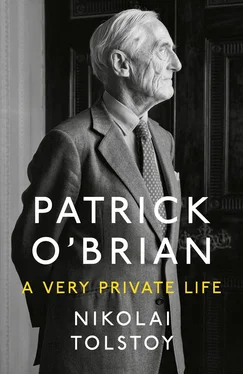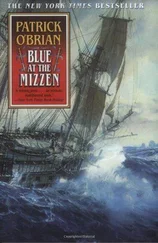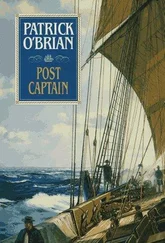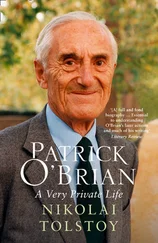Unhappily, the excitement proved ephemeral. Press reception in Britain was muted, and although one or two reviewers voiced approval of the book’s finer qualities, it slipped rapidly from public consciousness. For all their exceptional resilience and recurrent surges of optimism against hostile odds, for much of the time during the first two and a half years of their life in Collioure, Patrick and my mother found it hard to sustain their spirits. Foremost among concerns impossible to overlook was the grinding poverty of their existence, which continued poised on the brink of disaster.
Looking back, five months after their arrival in Collioure their bank balance stood at 600 francs (about 12 shillings). But for the unstinted generosity of their neighbours, and occasional contributions from my mother’s father, they could not possibly have survived. A year later my mother ruefully noted: ‘On Thursday the money had not arrived at the bank, so I borrowed 1000fr. The electricity came & demanded all we had save 5fr. so I went to Tante Alice for another 1000fr.’ In April 1951: ‘Accounts alarm me much: we spend far too much.’ By the end of that month: ‘Did month’s accounts: 11.000fr odd, much better. Two francs left in the house but will get bread and milk with “j’ai oublié mes sous & money should be at bank tomorrow”.’
Patrick and Willy Mucha
The year 1952 opened with the anguished query: ‘Can we live on 10.500 fr a month until July? We will try.’
For over two years they frequently went hungry. Having cooked a modest feast for St Patrick’s Day in 1951, my mother reflected: ‘We are so used now to very plain living that we cannot eat much at feasts, we have no capacity.’ For everyday diet: ‘We live mainly on new potatoes, fried bread & bread-and-marmalade.’ Much of their modest shopping was conducted across the frontier in Spain, where prices were much lower. This regularly involved my mother’s walking to Port Bou and back: a 34-mile round hike, traversing successive steep rocky ridges.
Patrick’s parting words on leaving Wales were: ‘if you’re going to be poor, it’s better to be poor in a warm country’. This was to prove true in some respects, and the couple grew adept at living off the land. On 3 September 1951 my mother ‘picked 4 lbs. of blackberries in the river bed, & we made about 5 lbs of jelly’. In the same week they went gathering figs in the mountains at Col de Mollo. The task proved hazardous as well as arduous. ‘Got a dozen ripe ones; trees covered in green ones … P. in tree and I underneath when a chasseur shot at us: shots spat all round. Coming home met Marraine who said the chasseurs are “très mal élevés”, & said Come & see her for some anchovies.’
After a time Patrick, who had been a keen fisherman in Cwm Croesor, took his rod to join men angling at night from the jetty, regularly returning with anything up to half-a-dozen tasty daurades (bream).
But this monotonous and erratic diet was largely seasonal, and there were lengthy spans when little or nothing was available to be picked or caught. They might scarcely have survived, had their sustenance not been supplemented by the wonderful generosity of the warm-hearted Colliourenchs . Typical entries in my mother’s diary read: ‘Mlle Margot called me in with great mystery & filled my basket with huge cauli., 4 eggs, a big onion & 6 oranges, all with hideous embarrassment; she could not meet my eye’; ‘Tante gave us viande hâchée & bones & pâté & a pot au feu’; ‘Mlle Margot brought us 13 fresh eggs & a litre of ? Banyuls “pour demain”’ (Easter Day).
My parents never forgot this kindness, and remained lifelong friends with many of their affectionate neighbours, a sadly diminishing handful of whom remain. Within such a tight-knit community, mutual concern and charitable support were taken for granted. Links of family and friendship permeated the town. When the electrician Cadène was electrocuted at work, some 1,500 people attended his funeral. An incomer, having bought a house in the town, sought to eject the tenants on grounds that they had lately failed to pay rent. The husband had in fact always paid, but on falling ill temporarily proved insolvent. The huissier (bailiff) arrived, together with a removal van, to enforce their departure. The town rose in anger, and, despite the appearance of gendarmes from Port-Vendres, refused to permit the ejection. The van driver declared that he would not have accepted the employment, had he known it was not an ordinary removal, while the ringleader of the town’s resistance was discovered to be gentle Dr Delcos.
The Colliourenchs also possessed enchanting natural courtesy. When King George VI died in 1952, ‘Women come up & say how sorry about King, tears running down their faces. Tricolor at half-mast in place & at post office.’ Women in the shops explained to each other, as my mother passed by, ‘c’est son roi à Madame.’
One neighbour remained for some reason dubious about the extent of this Christian spirit, expressing her view with that decisive emphasis that characterizes the true Colliourencque . At the time of Odette Bernardi’s difficult divorce, my mother ‘offered that O. would be happier if F[rançois]. were to remove her from here, Mlle. M[argot]. agreed “parce que c’est un pays de perdition, Collioure”. She repeated this many times, saying that we do not know – the terrible character of Collioure, unlike any other village.’
As my mother commented on encountering such baffling pronouncements: ‘eh?’
In view of their life of constant privation, it is not surprising that she and Patrick were rarely free from one ailment or another. From June 1950 ‘medecine’ and ‘chemist’ feature remorselessly in their monthly household accounts. In February 1951, ‘P. looked & felt terribly poorly on the 17 th’. Dr Delcos paid regular visits, presenting no bill until that May, when additional expense arose from treatment of the dangerous cyst in Patrick’s hand. In February 1952 ‘P’s rheumatism very bad’; a few weeks later ‘P. went to dr. & had his left ear completely cleaned but it is stone deaf still. The right one hurt dreadfully. He came out with shirt wet through.’ A persistent requirement was medicine for his ‘nerves’. Similarly, my mother was visited by recurrent afflictions: ‘My tum in bad condition’; ‘I slept all afternoon – had vile headache’; ‘Medecine [M’s liver] 530 [francs]’.
Some of Patrick’s troubles appear to have stemmed from unremitting mental strain. ‘Medicine [P’s nervous turn]’, reads a characteristic entry in their account book. A bad attack, the nature of which is obscure, occurred in May 1952, when my mother was staying with her parents in England. At dinner with their neighbours the Rimbauds:
I smoked. In spite of pills I felt the usual trouble coming on, but escaped in time on pretext of seeking Almanach Catalá – on the stairs wondered very much where I was – at home (still on all fours) recovered with dear Buddug’s aid (she was very kind on finding that it was not all a great game, and stood quite still, just touching my face) washed, returned in reasonably good form, and was able to finish the evening without, I hope and trust, throwing any damp.
About this time Patrick compiled a six-page essay, perhaps with a vague view to publication, entitled ‘How to make the best of poverty’. The advice is pragmatic, being based on daily experience:
If you have to go a month on x p[ennies]. you must make do on fr. the first day, and on each day after that. Never rely on any bank, friend, publisher or business person to send money on a given day
Do not ever pretend to be rich, with the lower classes. Be as affable as can be with them, but always use a good deal of ceremony – M. and Mme., and formal greetings always. [fn4] Конец ознакомительного фрагмента. Текст предоставлен ООО «ЛитРес». Прочитайте эту книгу целиком, купив полную легальную версию на ЛитРес. Безопасно оплатить книгу можно банковской картой Visa, MasterCard, Maestro, со счета мобильного телефона, с платежного терминала, в салоне МТС или Связной, через PayPal, WebMoney, Яндекс.Деньги, QIWI Кошелек, бонусными картами или другим удобным Вам способом.
If you have to borrow money, do it before you are destitute. Once you have no money at all (literally none) your mind, your values, are terribly distorted.
Читать дальше












